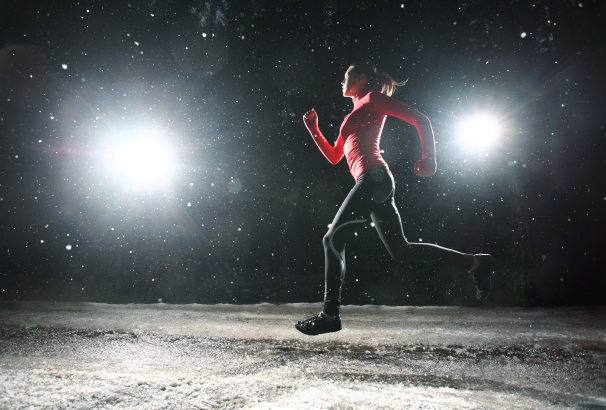TURNS OUT where you’re working out might have more of an effect on your fitness outcomes than you might have previously thought. The widely-accepted way we envision how the human body loses weight is generally calculated by calories: burn more than you put in to your body, and presto! Good-bye love handles and muffin tops. With that formula in place, it shouldn’t matter much if your workouts take place on land, at sea, or anywhere in between. But new research is suggesting that the intensity and levels of appetite you experience after you exercise can be affected by where you decided to work out, especially if it was in a particularly cold setting.
Realistically, anyone is at risk of overeating after a workout, but this generally comes from not having a good grasp on how many calories are actually burned during a workout, or from assuming that donuts suddenly become a safe food when you exercise regularly. (They don’t.)
But this recent study done by researchers at the University of Aberdeen in Scotland and the University of Birmingham in England looked specifically at exercise temperature to gauge eating habits afterwards. And boy, were those results different than what was expected.
The study consisted of the subjects walking on a treadmill for 45 minutes in two separate rooms — one in which the temperature was raised and one in which it was lowered. Researchers kept track of their vitals throughout the process, taking blood afterwards, and then allowed them to eat what they wanted from a buffet while secretly paying attention to exactly what they chose to eat and how much of it.
What they found was that the participants who exercised in the colder temperature consumed significantly more calories and carbohydrates than their warmer counterparts. They also tested for higher levels of ghrelin in their blood, a hormone that ignites hunger in the body. The people who worked out in the warmer room didn’t experience a spike in ghrelin at all.
The most important thing to note here, is that the people who worked out in the cold did not burn more calories during their workout than the people in the warmer room. It has long been assumed that working out in colder weather requires more energy and that’s why you might feel hungrier afterward, but that doesn’t seem to be true.
It actually appears that working out in warmer temperatures requires more energy from the body since it has to increase blood flow to get rid of excess heat from the surface of the skin when the body keeps building more of it. In the cold, blood pumps as normal.
More research might be needed into the topic, since the sample groups used weren’t particularly thin or fitness-oriented, but it’s a pretty good excuse in the meantime for staying cozy on the treadmill and turning your nose up to any blistery winter runs this season.







-300x169.jpg)


-300x221.jpg)






